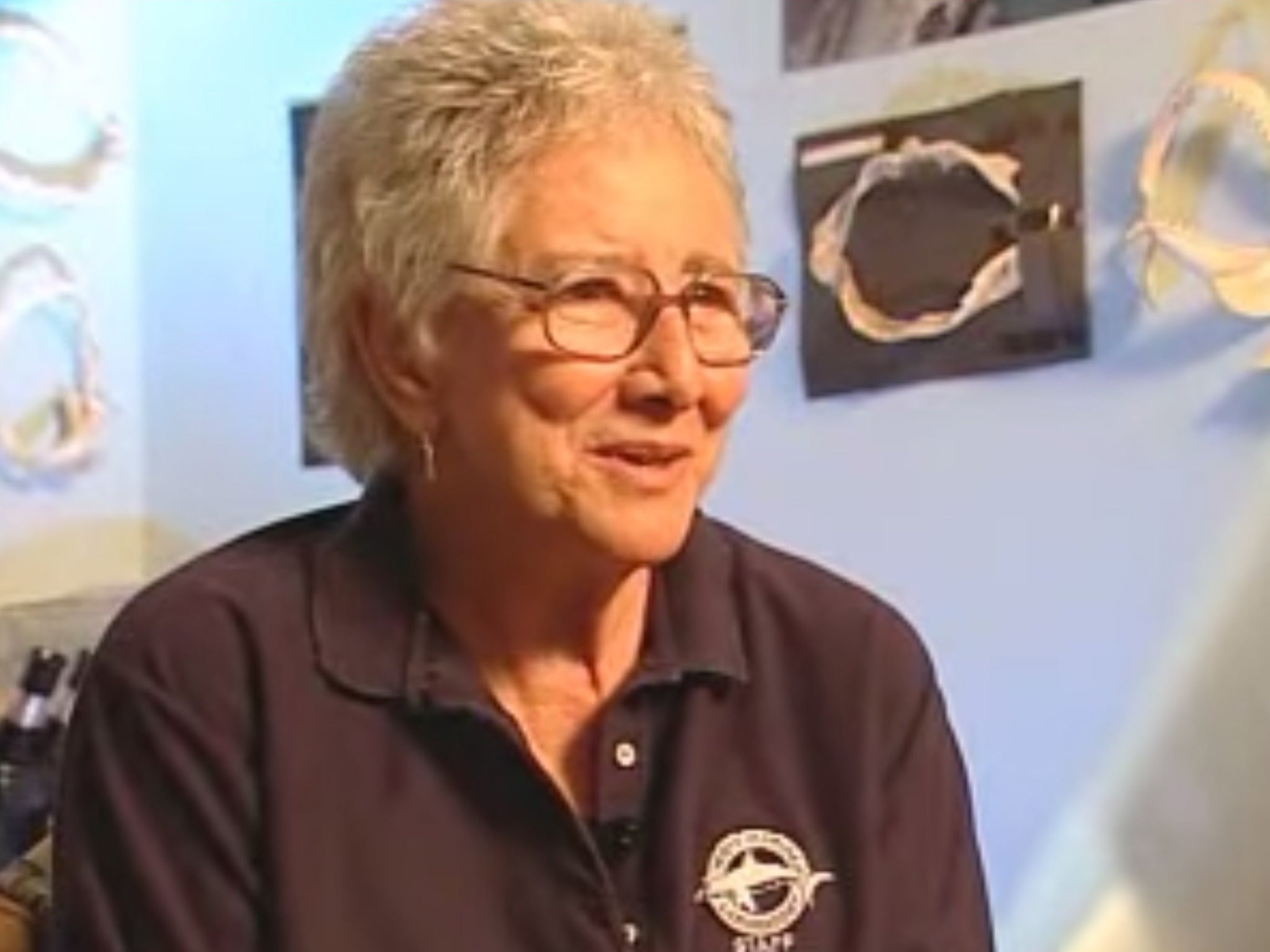Eugenie Clark: Ichthyologist who overcame gender barriers to become one of the world’s leading authorities on sharks

Eugenie Clark defied society’s expectations about women in science to become one of the world’s leading authorities on sharks. An unabashed adventurer and prolific researcher, Clark travelled the world to study reef fish, sharks and mollusks.
She made 71 dives in submersibles, a practice that is still done by a relatively small number of explorers, diving at one point to 12,000 feet. Clark criticised the 1975 film Jaws, and other popular depictions of sharks that gave them “a bad rap”.
The first time Clark encountered a pregnant whale shark, off Baja California, in 1980, she grabbed a fold of skin under the animal’s dorsal fin and rode it. “It was incredible,” she said, recalling how she lost sight of her colleagues on their vessel. “When I finally came up, I could barely see the boat, I was so far away.”
One of Clark’s most significant academic contributions came in the late 1950s when she proved that sharks could be trained to pick a target based on visual clues and could learn tasks as quickly as mammals. She published her findings in the journal Science.
“It was the first demonstration of sharks’ intelligence,” said Robert Hueter, director of Mote’s Center for Shark Research. “Before, people thought these were primitive, dim-witted animals.” She documented sleeping sharks in underwater caves in Mexico and Japan, a finding that challenged the conventional wisdom that sharks have to move constantly in order to get the oxygen they need to survive. She wrote more than 175 articles for the academic and popular press.
She was born in New York to an American father, and a Japanese mother who would sometimes drop her off on Saturday mornings at an aquarium in Manhattan. Persuading her mother to buy a tank, she amassed a collection of fish. She graduated in 1942 in zoology.
She befriended the wealthy Vanderbilt family who admired her first book, Lady With a Spear (1953); they invited her to visit them in Florida, and in 1955 she moved with her second husband, surgeon Ilias Konstantinou, and their daughters, “to start a marine laboratory in a little wooden building, in Placida [Florida],” she wrote in her 1969 book The Lady and the Sharks. Clark was the lab’s director until 1967.
She lobbied world leaders such as the Egyptian president Anwar Sadat to set aside marine protected areas. She approached Sadat’s son at a Red Sea fishing tournament he was leading, and within weeks the encounter led to the establishment of Egypt’s first marine park.
Clark took her last ocean dive in 2014 off the Solomon Islands. In 2008, when she was describing how deep she had recently gone, she told a reporter to keep her secret. “Don’t mention how deep I went,” she said. “I’m not supposed to do that anymore.”
Eugenie Clark, ichthyologist: born New York 4 May 1922; twice married (two daughters, two sons); died 25 February 2015.
© The Washington Post
Subscribe to Independent Premium to bookmark this article
Want to bookmark your favourite articles and stories to read or reference later? Start your Independent Premium subscription today.

Join our commenting forum
Join thought-provoking conversations, follow other Independent readers and see their replies